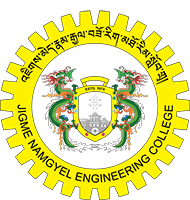JNEC is a recipient of a European Union (EU) project titled, Problem Based Learning (PBL) for South Asian Universities.
Problem Based Learning is a universal tool that can be applied on any discipline of learning to bring together students, teachers, developers, entrepreneurs and communities to a common circle. PBL drives meaningful real-life challenges towards human-centric design process and extending solutions to local problems. The core focus of the project is on educational exchange with priorities on sustainable development, cross-cultural exchanges and engaging students and local communities in meaningful learning process and beneficial outcomes. PBL enable students in learning with a difference; to identify solutions to problems, ideating solutions using classroom concepts and applying these concepts to benefit communities and encourage entrepreneurship.
Jigme Namgyel Engineering College, The Royal University of Bhutan is a beneficiary of the Erasmus+ (European Union) project along with nine other partner universities/colleges from Finland, Netherlands, Lithuania, Nepal and India.
The project aims to bridge learning between universities in Europe and South Asia, in terms of technical exchanges, strengthening the capacity of partner higher education institutes and to breed local innovation ecosystems

The First Kick off workshop for the PBL project was held in Aalto University, Finland, where the foundational works of the project was laid and experiences from previous relevant projects were shared. The workshop which was facilitated by experts from partner universities, especially Aalto University, Finland facilitated sessions on PBL description, workplans in the partner institutes embedding sustainability in innovation works and integrating PBL tools and techniques into the education system. The South Asian Universities, the primary beneficiaries from the project discussed on the potential areas and methods of implementation of PBL into the respective curricula through a structured process.
PBL is a paradigm shifter from conventional education system to skill and practical based modern application of concepts. PBL South Asia project would enable JNEC to provide capacity development programmes to our faculty members in the area of PBL through exchange of knowledge and skills between South Asian and European HEIs. It will also help JNEC in developing a structured curriculum and implementing the same in the College. The project would further enable JNEC to procure suitable equipment/machines to materialize PBL in our curriculum.
Aalto Global Impact of Aalto University, Finland is the overall coordinator and the consortium comprises of the following HEIs:
- Aalto University, Finland
- Asian Institute of Technology & Management, Nepal
- Delft University of Technology, Netherlands
- Indian Institute of Science Bangalore, India
- Indian Institute of Technology Bombay, India
- Kathmandu University, Nepal
- Kaunas University of Technology, Lithuania
- Nepal Engineering College, Nepal
- Jigme Namgyel Engineering College (Royal University of Bhutan), Bhutan, and
- Sagarmatha Engineering College, Nepal.

The Kick-off meeting in Finland was followed by a workshop to understand the first case of student-based case study jointly carried out by the students of Aalto University, Finland and AITM, Nepal in Dhungetar, Nepal. The case focused on helping the community of Dhungetar rebuild their homes and livelihood from the devastating earthquake of 2015. The workshop and the presentations were held in Kathmandu, coordinated by Kathmandu University and Sagarmatha Engineering College respectively.
Further information on the project is available on the PBL South Asia website:
